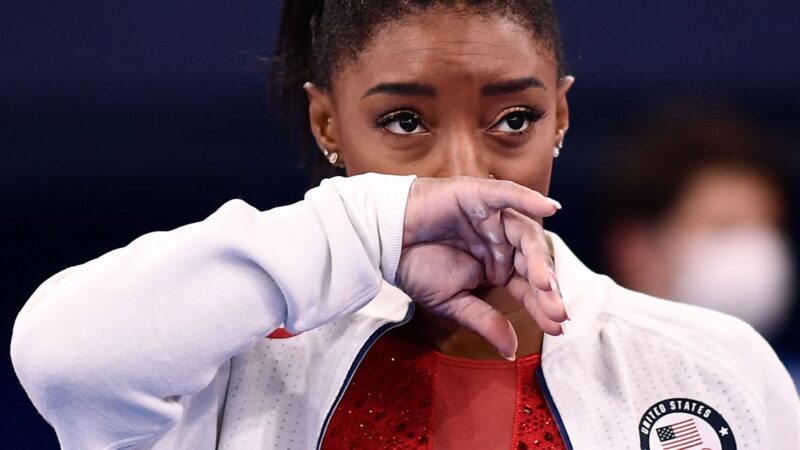
Gymnastics philanthropist, Simone Biles cried out for character assassination and dehumanization of her personality

Simone Biles, a name synonymous with gymnastics excellence, has transcended her sport to become a powerful voice for mental health and resilience. However, her recent experiences have unveiled a darker side of fame: the relentless character assassination and dehumanization that public figures often face.
Biles has faced immense scrutiny throughout her career, but the pressure intensified during the 2020 Tokyo Olympics. Her decision to prioritize her mental health over competition ignited a storm of controversy. Critics questioned her commitment, dismissing her struggles as mere weakness. This response starkly illustrates a broader societal issue: the tendency to dehumanize athletes by reducing them to mere performers, disregarding their humanity and emotional struggles.
The concept of character assassination is not new, but it manifests in unique ways in the world of sports. For Biles, it meant enduring public commentary that painted her as fragile or ungrateful, despite her monumental achievements. Such narratives overlook the years of dedication and sacrifice that define her career. Instead of recognizing her bravery in advocating for mental health, detractors chose to focus on a single moment, twisting it into a weapon against her character.
Biles’ experiences resonate deeply within a culture that often values success above all else. Athletes, particularly women, frequently encounter a double standard: they are expected to perform flawlessly while also being role models, all while navigating personal challenges. The pressure to maintain an image can lead to profound isolation and anxiety, which Biles bravely acknowledged. Her candidness about her struggles sparked critical conversations about mental health, illustrating the strength it takes to prioritize one’s well-being over societal expectations.
In the realm of social media, character assassination can thrive unchecked. Platforms that amplify voices can also serve as breeding grounds for negativity. Biles has spoken about the toxic environment created by online critics, who often hide behind anonymity to launch personal attacks. This phenomenon strips individuals of their dignity, reducing them to targets for mockery and judgment. It reflects a disturbing trend where public figures are not just celebrated for their achievements but also scrutinized and vilified at the slightest misstep.
Dehumanization extends beyond mere words; it influences how society perceives and interacts with athletes. Biles’ decision to withdraw from certain events was a radical act of self-care, yet many chose to interpret it as a failure. This binary perspective—success or failure—fails to acknowledge the complexity of human experience. Biles’ story illustrates that strength can manifest in many forms, including the courage to step back when needed.
In advocating for change, Biles has become a beacon for others grappling with similar challenges. Her platform allows her to challenge the narratives that seek to define athletes solely by their performance. By speaking out, she encourages a reevaluation of what it means to be strong, shifting the focus from unyielding perfection to authenticity and vulnerability.
The character assassination Biles has faced is emblematic of a broader societal issue that demands attention. As we celebrate athletes and their achievements, it is essential to recognize their humanity. Supporting mental health and fostering a culture of empathy can create a safer space for all individuals, whether they are in the spotlight or behind the scenes.
Simone Biles’ journey is a reminder that behind every champion lies a person with fears, struggles, and dreams. As fans and supporters, we have a responsibility to uplift rather than tear down. In doing so, we honor not only Biles but the countless individuals who find themselves battling the harsh realities of public scrutiny. Through her resilience, Biles inspires us to advocate for kindness, understanding, and a more compassionate view of those who dare to shine brightly in the public eye.





